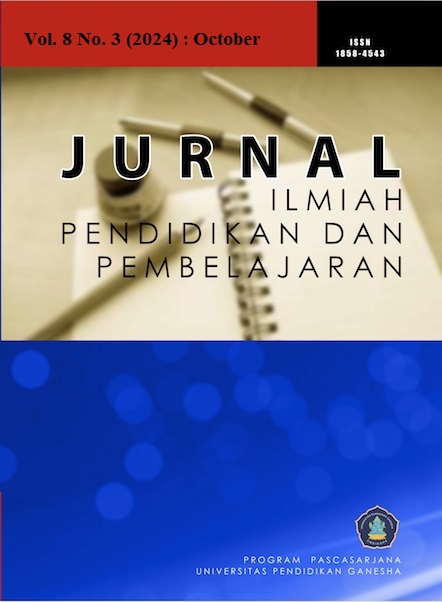Self-Regulation, Achievement Motivation, and Academic Flow on High School Physics Learning Achievement
Keywords:
Self-Regulation, Learning Achievement Motivation, Flow Academic, Learning AchievementAbstract
Learning achievement is often defined as a reflection of the quality of education, whereas various internal factors often infareence low and high learning achievement. This study aims to analyze the effect of self-regulation, achievement motivation, and academic flow on learning achievement. This study is qualitative with an ex post facto design. There are 219 grade XI students from state senior high schools. The sample was selected using the proportional sampling technique. Data were collected using test and non-test methods. The test method uses a test, while the non-test uses a questionnaire as a research instrument. The collected data were analyzed using the Structural Equation Model (SEM) and path analysis. The analysis was carried out with the help of the SMART PLS and SPSS applications. The results of the study showed that student learning achievement is influenced by self-regulation. Student learning achievement is influenced by achievement motivation. Student learning achievement is influenced by academic flow. Student academic flow is influenced by self-regulation. Student academic flow is influenced by achievement motivation. Student achievement motivation is influenced by self-regulation. Self-regulation has an indirect effect on physics learning achievement through academic flow. Achievement motivation indirectly affects student physics learning achievement through academic flow. It is concluded that self-regulation, achievement motivation, and academic flow influence high school physics learning achievement. These findings imply the important role of self-regulation, achievement motivation, and academic flow in students' physics learning achievement.
Published
How to Cite
Issue
Section
License
Copyright (c) 2024 Erika Saraswati

This work is licensed under a Creative Commons Attribution-ShareAlike 4.0 International License.
Authors who publish with the Jurnal Ilmiah Pendidikan dan Pembelajaran (JIPP) agree to the following terms:
- Authors retain copyright and grant the journal the right of first publication with the work simultaneously licensed under a Creative Commons Attribution License (CC BY-SA 4.0) that allows others to share the work with an acknowledgment of the work's authorship and initial publication in this journal.
- Authors are able to enter into separate, additional contractual arrangements for the non-exclusive distribution of the journal's published version of the work (e.g., post it to an institutional repository or publish it in a book), with an acknowledgment of its initial publication in this journal.
- Authors are permitted and encouraged to post their work online (e.g., in institutional repositories or on their website) prior to and during the submission process, as it can lead to productive exchanges, as well as earlier and greater citation of published work. (See The Effect of Open Access)










